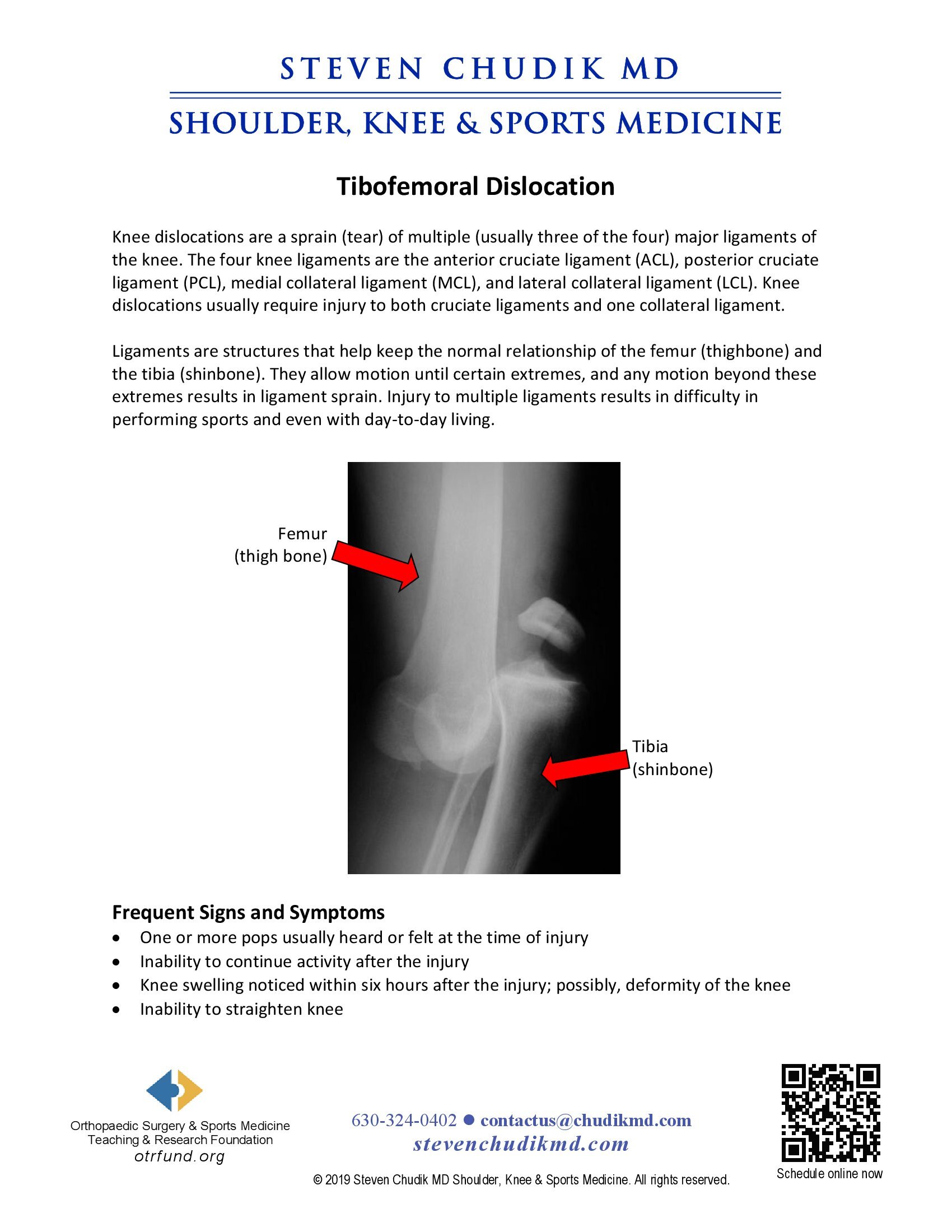 Don’t drink caffeine for an energy boost---climb the stairs
Don’t drink caffeine for an energy boost---climb the stairs
Knee dislocations are a sprain (tear) of multiple (usually three of the four) major ligaments of the knee. The four knee ligaments are the anterior cruciate ligament (ACL), posterior cruciate ligament (PCL), medial collateral ligament (MCL), and lateral collateral ligament (LCL). Knee dislocations usually require injury to both cruciate ligaments and one collateral ligament. Ligaments are structures that help keep the normal relationship of the femur (thighbone) and the tibia (shinbone). They allow motion until certain extremes, and any motion beyond these extremes results in ligament sprain. Injury to multiple ligaments results in difficulty in performing sports and even with day-to-day living.
Knee dislocation is caused by a force that exceeds the strength of the ligament. This injury usually is the result of a severe injury, although it may be caused by a non-contact injury (such as stepping in a hole in the ground, hyperextending the knee, and twisting).
Immediate repositioning of the bones (if displaced) and evaluation of artery and nerve function must be performed. Initial treatment consists of medications and ice to relieve pain and reduce the swelling of the knee. Walking with crutches is often recommended. Bracing or casting may also be recommended initially. Rehabilitation of these injuries usually concentrates on reducing knee swelling, regaining knee range of motion, regaining muscle control and strength, functional training, bracing (often), and education, such as avoiding sports that require pivoting, cutting, changing direction, and jumping and landing. Properly timed surgical repair or reconstruction (replacement) of one or both of the ligaments, in the hands of an experienced orthopedic surgeon, has the best chance for an optimal result. Artery injury requires immediate surgical attention. Some athletes never return to sports, although often this depends on the associated injuries and the demands of the sport.
If untreated, a knee dislocation will usually result in the knee giving way and recurrent injuries to the knee with sports and often with daily activities. Injuries to the arteries or nerves have a higher risk of poor outcome. Often surgery is required for knee stability. Some athletes never return to sports participation after this injury, although the prognosis is much better when there is no injury to the artery and nerves.
Learn More